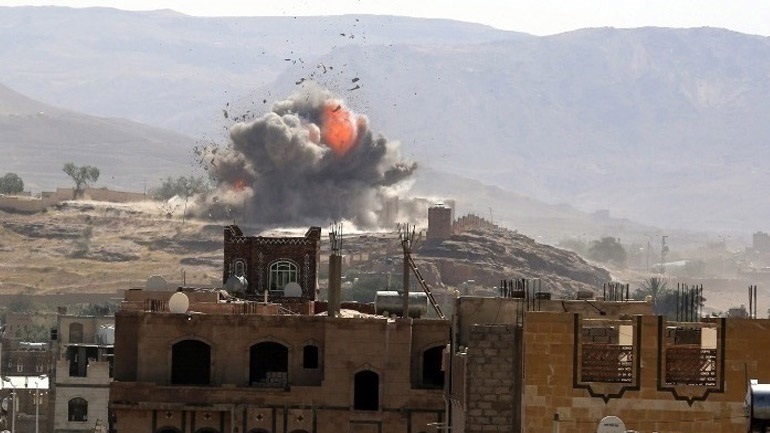Some 14,700 Shiite rebels have been killed in five months in a battle for control of the strategically important province of Marib and its northern capital, Yemen, two Houthi sources said on Thursday.
Guerrillas rarely report casualties in hostilities.Remaining Time-0:00FullscreenMute
Most of the fighters were killed in airstrikes by the Saudi-led military alliance that intervened in the March 2015 war, two defense ministry officials in the Yemeni capital, Sanaa, said in 2014. the Houthi.
On the other hand, according to two army officials of the internationally recognized government, about 1,250 men of the government forces defending areas around the city of Marib, the capital of an oil-rich province, have been killed in the same period.
The Houthis, who are close to Iran, captured Sanaa in 2014 as the extremely bloody civil war raged. Since then, they have deported practically all of the north from government troops, with the exception of Marib.
In February, they launched a large-scale operation to seize it, and in June, they escalated their offensive, sending thousands of fighters to the front.
Advance
In recent weeks, the alliance led by Riyadh, which has intervened in the war on the side of the internationally recognized government, has multiplied air strikes around Marib. He announces daily that he manages to inflict dozens, if not hundreds, of losses on the Houthis.
About 4,000 Shiite insurgents have been killed during this time, according to alliance announcements, a number that is impossible to confirm with independent sources. And – despite the losses announced by their opponents – the Houthis are gaining ground, continuing to advance towards the city.
The alliance, for which the loss of Marib would be a disaster, yesterday spoke of some “27,000” guerrillas killed “in the battle of Marib” since February.
On another critical front last week, the Houthis seized a vast area south of Hondaida, the western Yemeni city where the port through which most of the humanitarian aid and imported goods enter the country is located.
Forces of the internationally recognized government and the military alliance under the command of Saudi Arabia have left their positions in the sector, without explaining why.
After seven years of war, Yemen is mired in what the UN calls one of the worst humanitarian tragedies on the planet. More than two-thirds of the population of the Arabian Peninsula is dependent on humanitarian aid. Tens of thousands of people, mostly civilians, have been killed and millions more uprooted, according to international aid organizations.



